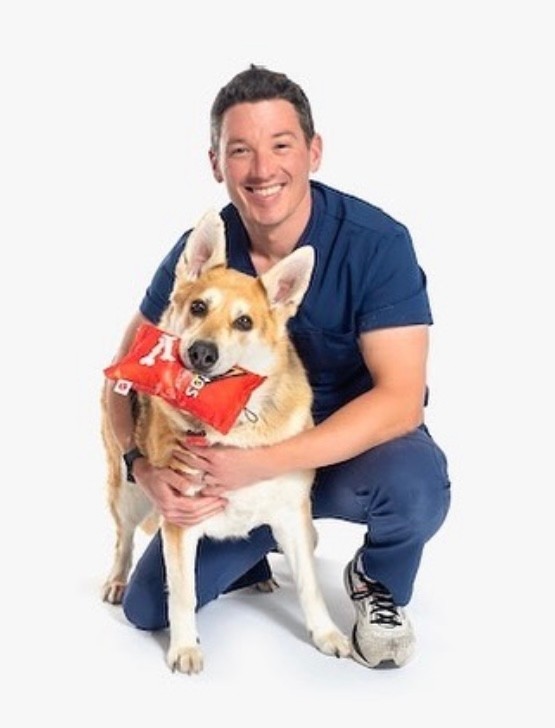We were lucky to catch up with Daniel Walters recently and have shared our conversation below.
Daniel, appreciate you joining us today. Can you open up about a risk you’ve taken – what it was like taking that risk, why you took the risk and how it turned out?
Pivoting from human to veterinary healthcare was a big risk- Would I be accepted in the veterinary world? Could I land a full-time job? Would my clinical skills be enough to be successful? These are questions I often worried about when I decided to pursue working with animals after 13 years of practicing as a human Physical Therapist. Until 2019, I wasn’t even aware that Physical Therapists could work with animals. But when my dog Kona injured her ACL and needed surgery, I was referred to an Animal Physical Therapist to help with her recovery. I quickly discovered that this line of work seemed like a great fit for me and could have the potential to be very fulfilling. After that, it became a matter of time, money and opportunity to be able to pursue the necessary training. Covid hit in 2020 and disrupted the human healthcare industry, specifically the home health practice setting, to a much larger magnitude than the normal disruptions. The company I was working for at the time was furloughing or laying off clinicians, and if you were lucky enough to keep your job it came with a substantial pay cut, mine was around 60%. After being told by company leadership that as a Physical Therapist I was “essential, but not that essential”, I suddenly found the time and opportunity to obtain my training for animal rehab!
The initial risk was financial, because the specialized training and clinic hours for animal rehab was not cheap, and there was no guarantee of a job after completing the training. The second risk was developing relationships in a brand new industry. Just because you have the training, that alone doesn’t translate to quality care and being successful. Trust is very important in veterinary medicine, and it takes time, effort and good clinical results to build that trust. Animal Physical Therapists face certain amounts of skepticism in the veterinary field, given that we are all initially trained at human schools of medicine instead of veterinary schools of medicine. Some Veterinarians that specialize in rehab or sports medicine may feel threatened that Physical Therapists can also work with animals, which can sometimes cause conflict related to patient access and how the scope of practice of Physical Therapists is defined in the veterinary world.
As it turns out, my decision to work with animals has worked out better than I ever thought! In general, the veterinary community has been very welcoming and collaborative, doing what’s best for animals. I was motivated to go out and establish relationships with experts in the field, and the relationships that I have been able to develop are strong. I believe this has enabled me to become the best Animal Physical Therapist I can be. I can’t tell you how good it feels to leave one industry that chronically undervalues it’s workers to an industry where you are valued. Don’t ever tolerate jobs, people or situations that make you feel inadequate. Life is too short!

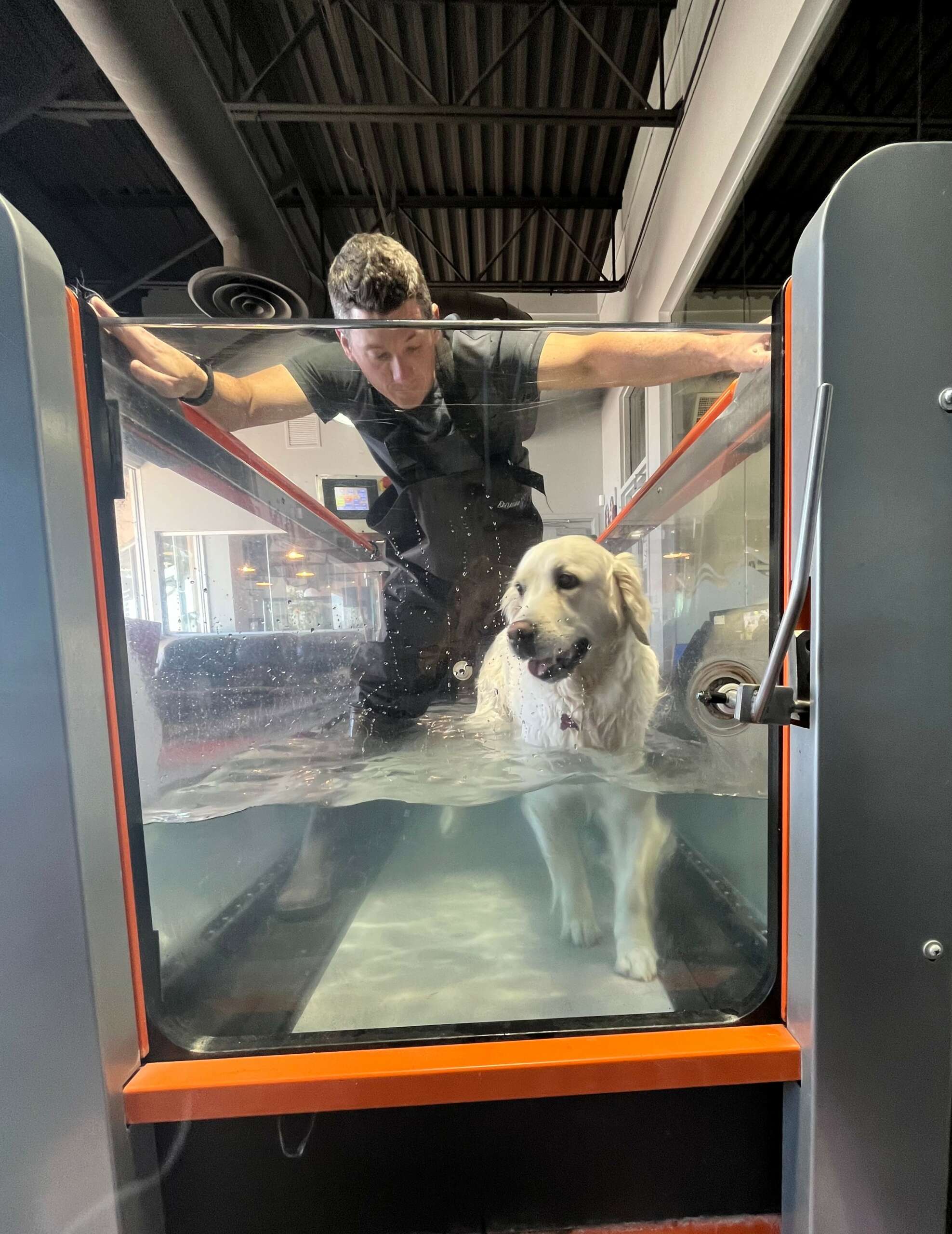
Awesome – so before we get into the rest of our questions, can you briefly introduce yourself to our readers.
I grew up outside of Atlanta, Georgia. I obtained my undergraduate degree from the University of Georgia and then my Doctorate of Physical Therapy from Emory University. In 2020-2021 I obtained my specialty certification in canine rehabilitation plus my animal physical therapy licensure to be able to provide physical therapy for animals in the state of Colorado. Physical Therapists can’t work with animals in every state, it is dependent on that state’s practice act, which defines the scope of practice of what those providers can and can’t do. Animal Physical Therapists solve mobility problems, we are movement experts. I think what sets us apart from others is our unique knowledge base, training and clinical decision-making which enables us to provide high quality care for patients across the lifespan, optimize their mobility and maximize their quality of life.
I’m most proud of the bonds I have with my patients and clinical results I’ve been able to facilitate. From a totally paralyzed dog being able to walk again to an older dog with arthritis just getting more comfortable moving around, I’ve found that animals are very resilient and have great rehab potential. It’s very rewarding to help animals move better, I can tell it really impacts their quality of life and happiness. The principles and methods of physical therapy for animals is really not that different from humans, we are very similar in many ways! I would like others to know that establishing a bond with my patients is probably the most important aspect of success, but it doesn’t come without cost. Animals don’t live as long as us, so the emotional weight can be heavy at times.
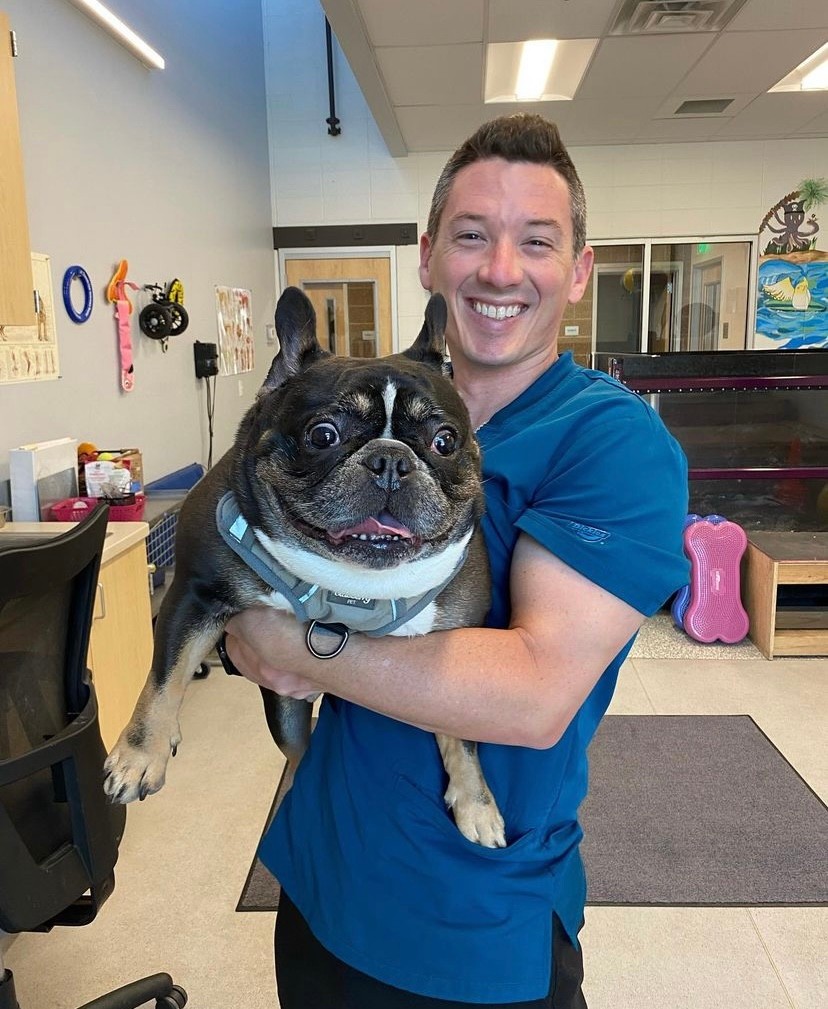
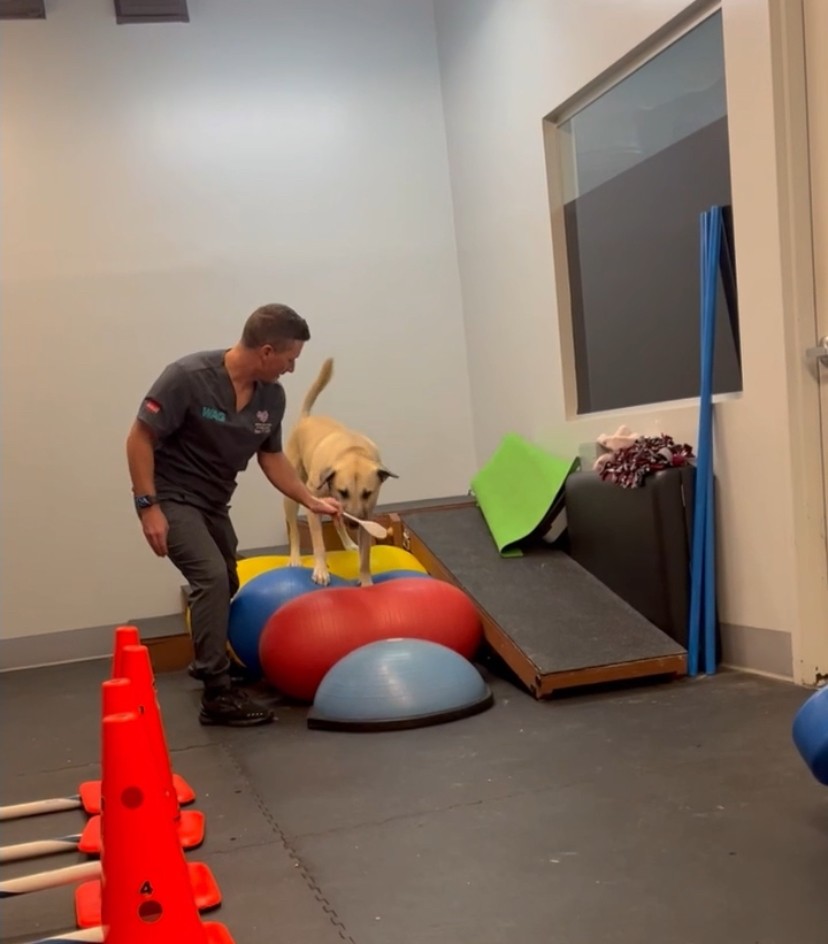
Training and knowledge matter of course, but beyond that what do you think matters most in terms of succeeding in your field?
I think trusting relationships has been the most helpful part of my success in the field of animal rehab. Veterinarians trust me to provide honest perspectives, results and high quality care. For example, I’ve had many referrals from Veterinarians who needed help localizing a root cause of pain or movement dysfunction when the symptom clusters didn’t make sense, in which my findings were later validated with medical imaging. This sort of team approach, and being part of a team in general, has been very important for my success. Next, owners that trust me to work with their pets and trust of the patients themselves is another aspect of my success. If an animal or their owner doesn’t trust you or feel comfortable around you, you will not be getting any work done. Lastly, having mentors is a very important factor for success and burnout prevention; someone you can go to with questions or concerns, talk to about challenges, and that you trust having an unfiltered conversation with is extremely valuable.
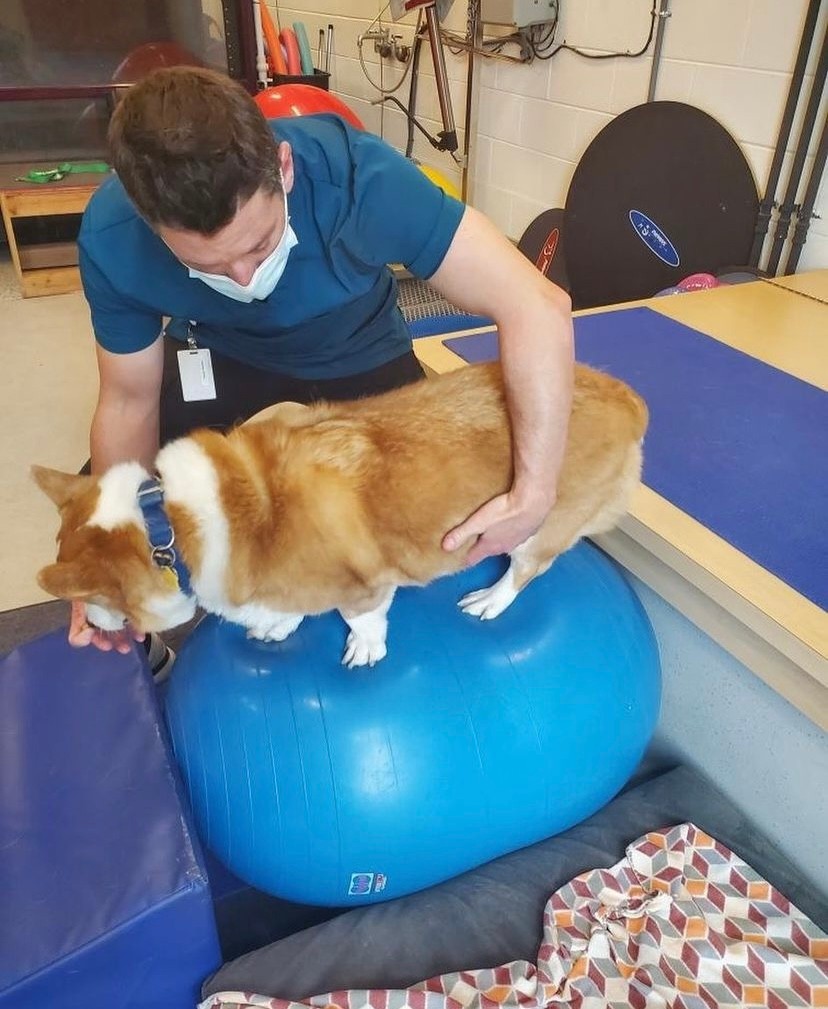
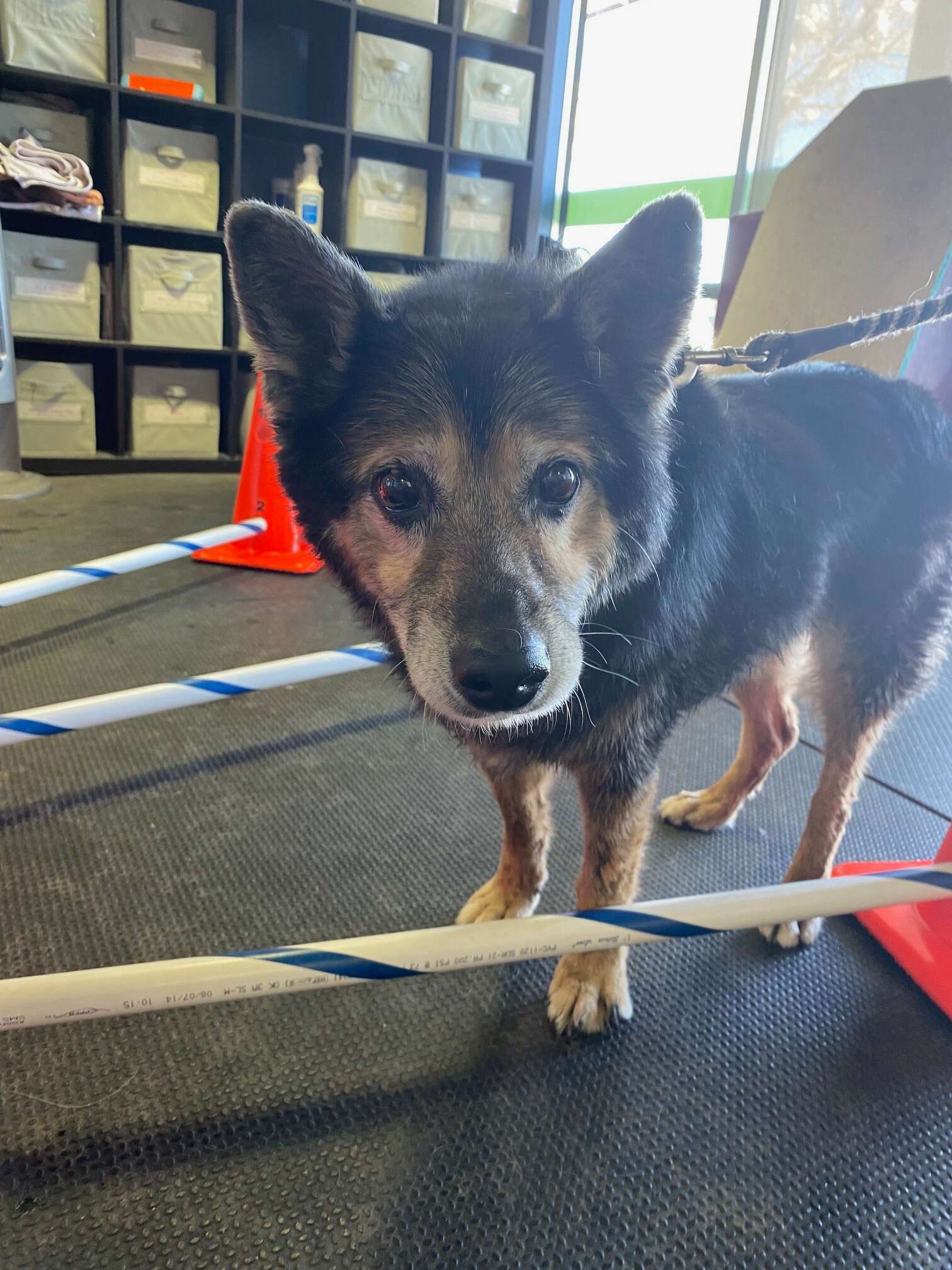
How’d you build such a strong reputation within your market?
First, I think clinical results have helped build my reputation as an effective and reliable clinician. Second, I think my communication skills have supported my clinical skills. You could be a clinical genius but if you don’t communicate any of it your reputation will be defined by what everyone else decides to say about you. Third, I think my ability to bond with patients hasn’t gone unnoticed. Being able to work with aggressive dogs, dogs with behavioral problems, and a wide variety of other animals with their own unique personality has been an important factor for my reputation. Don’t just take it from me, as one of my long time clients puts it on google reviews: “Daniel is an awesome therapist who genuinely cares for our GSD Liv! We highly recommend him; he has taken our girl through 2 separate recoveries from CCL surgeries.”
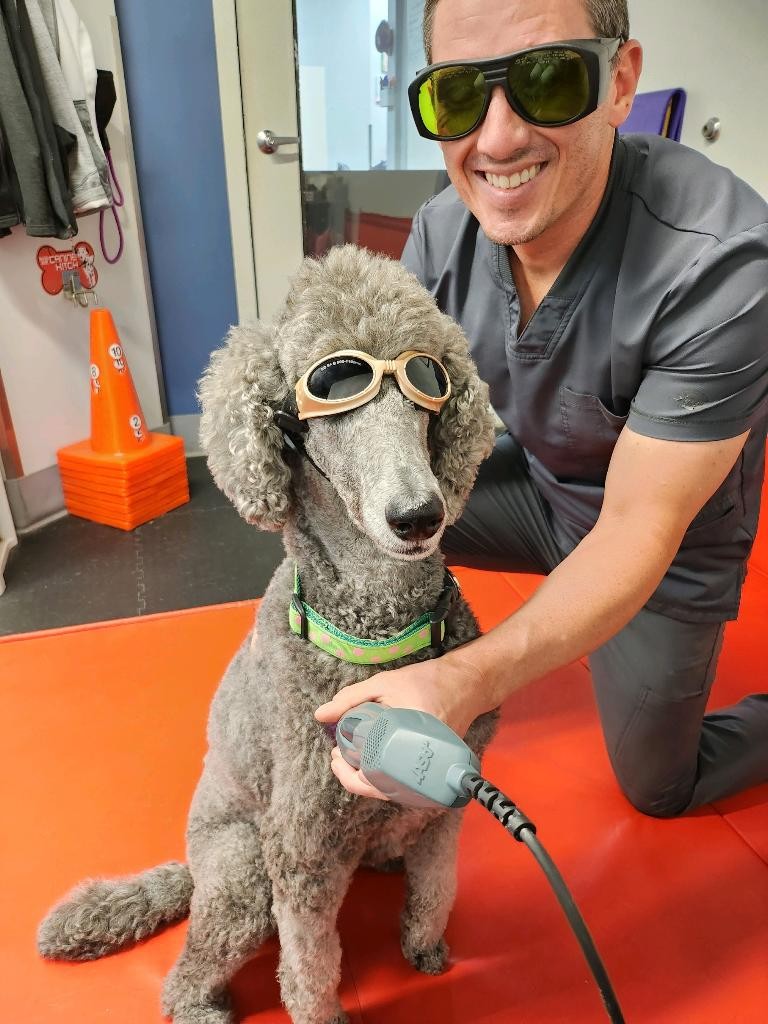
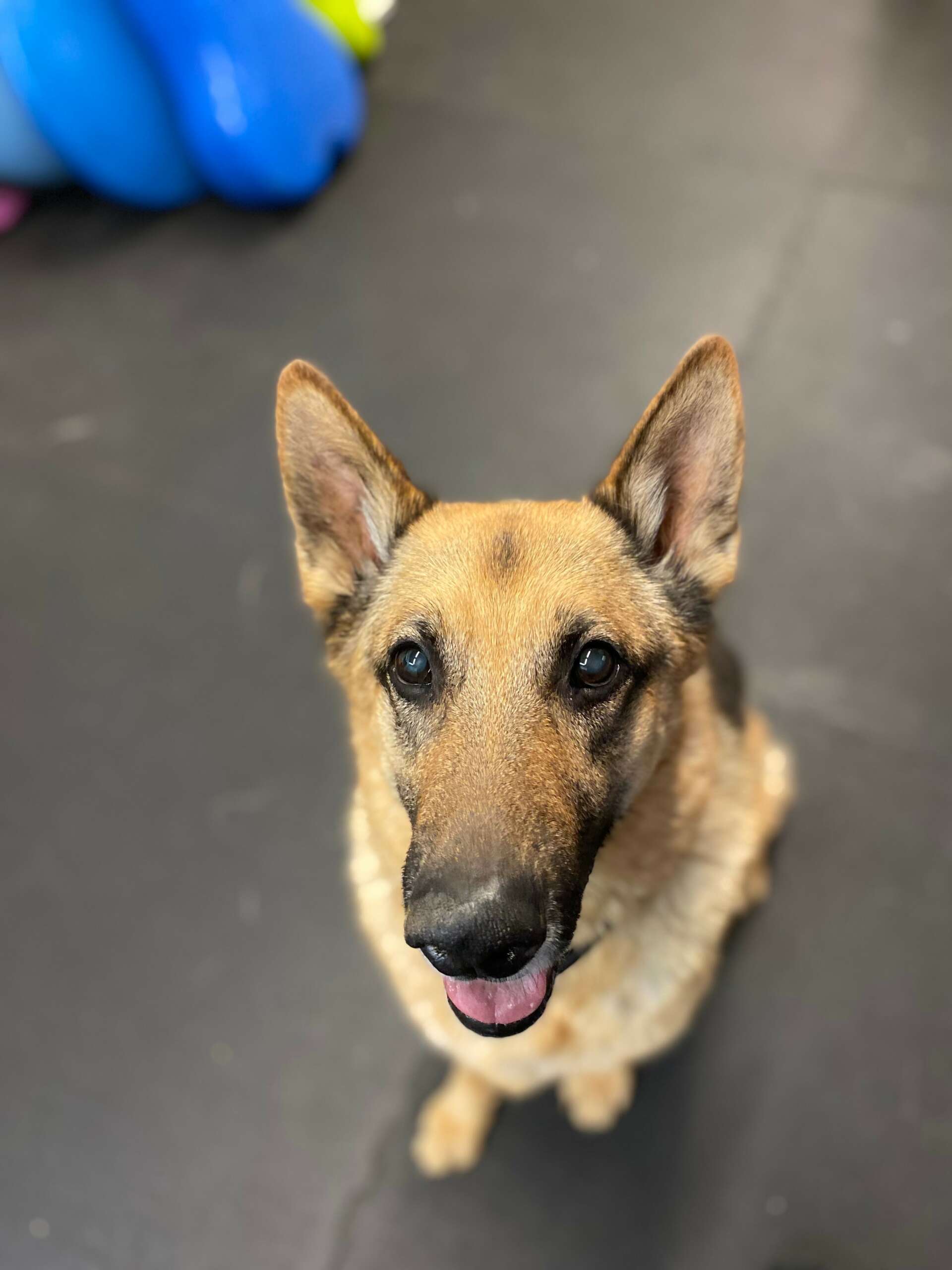
Contact Info:
- Website: https://www.animalcarectr.com/
- Instagram: @thepetpt


